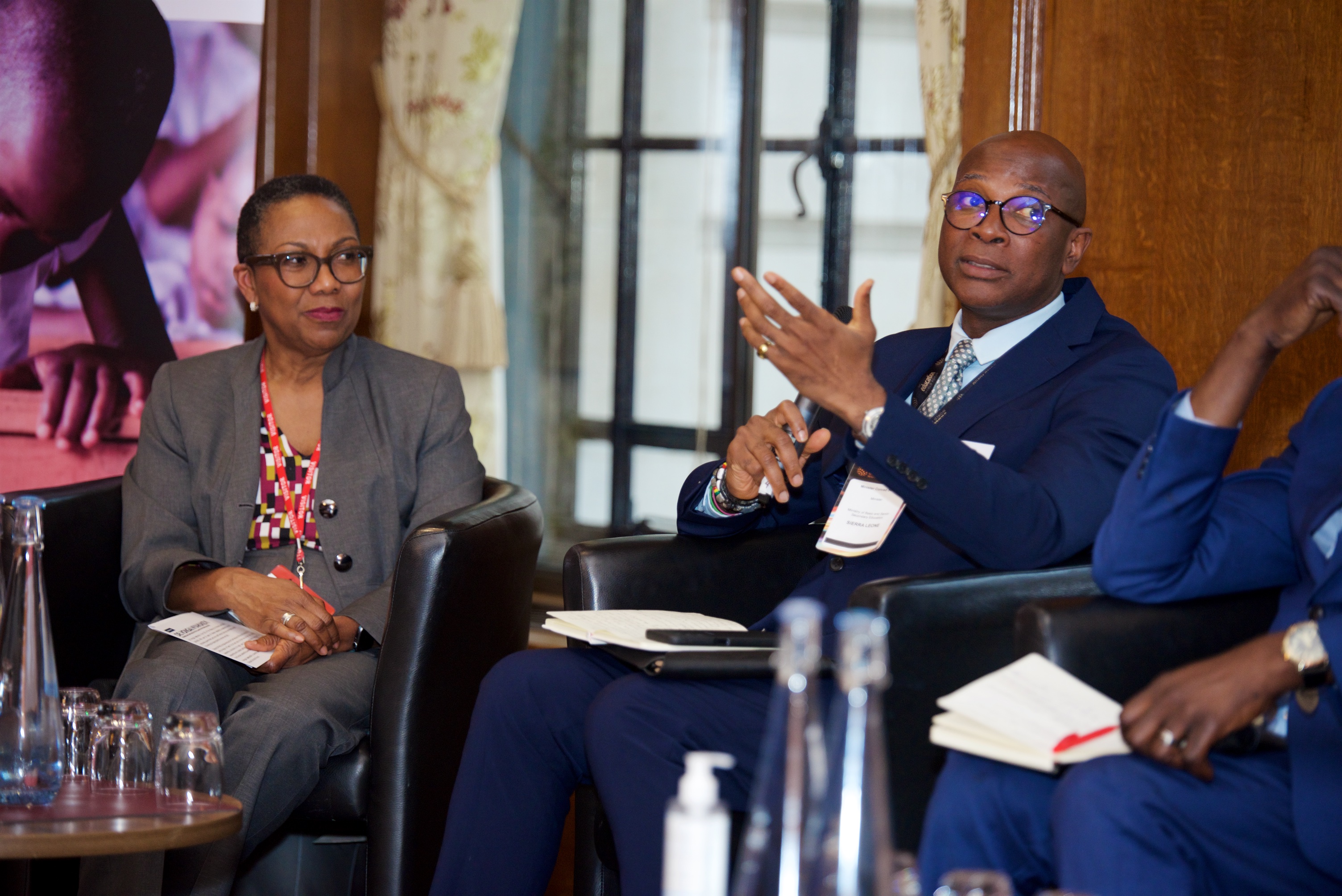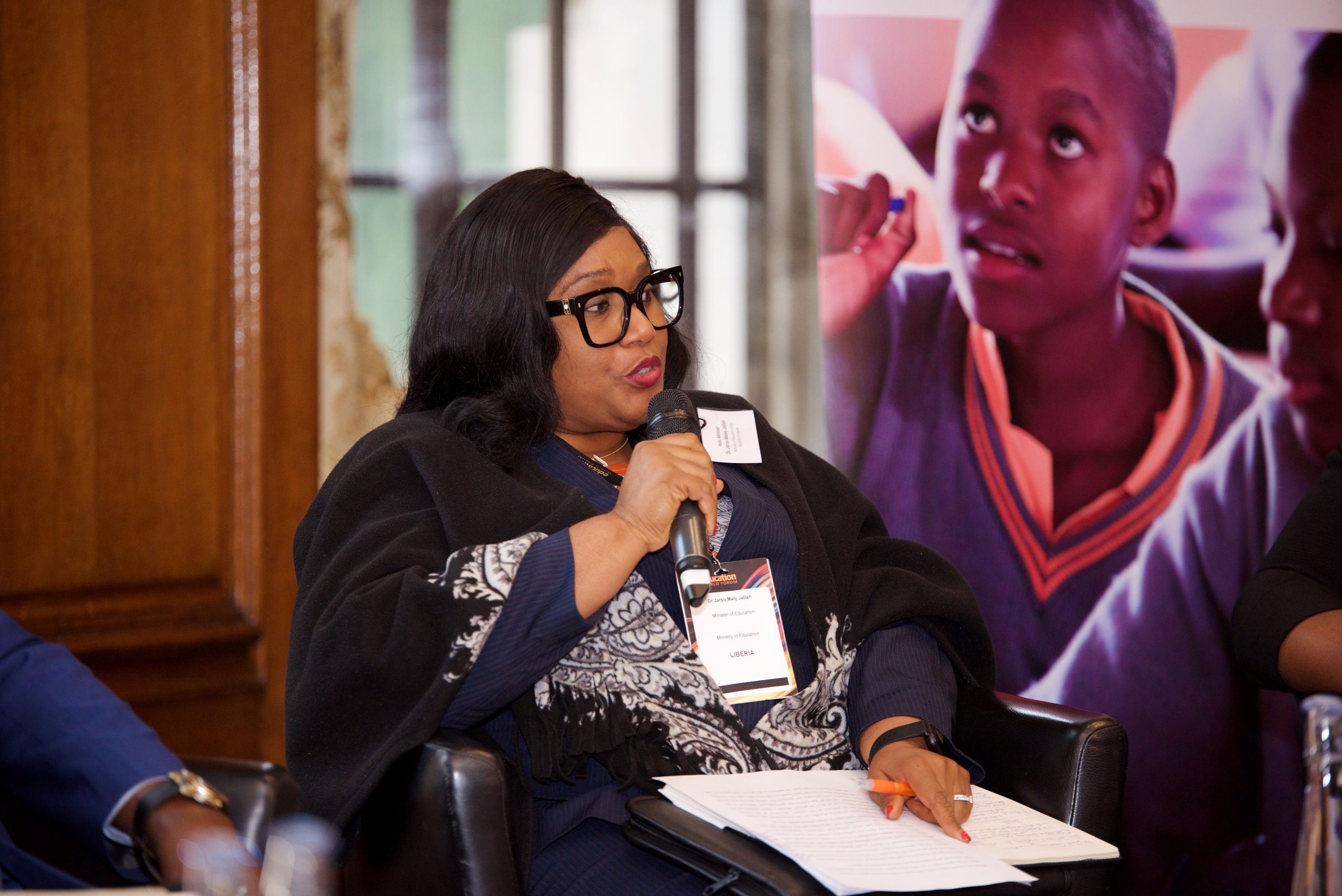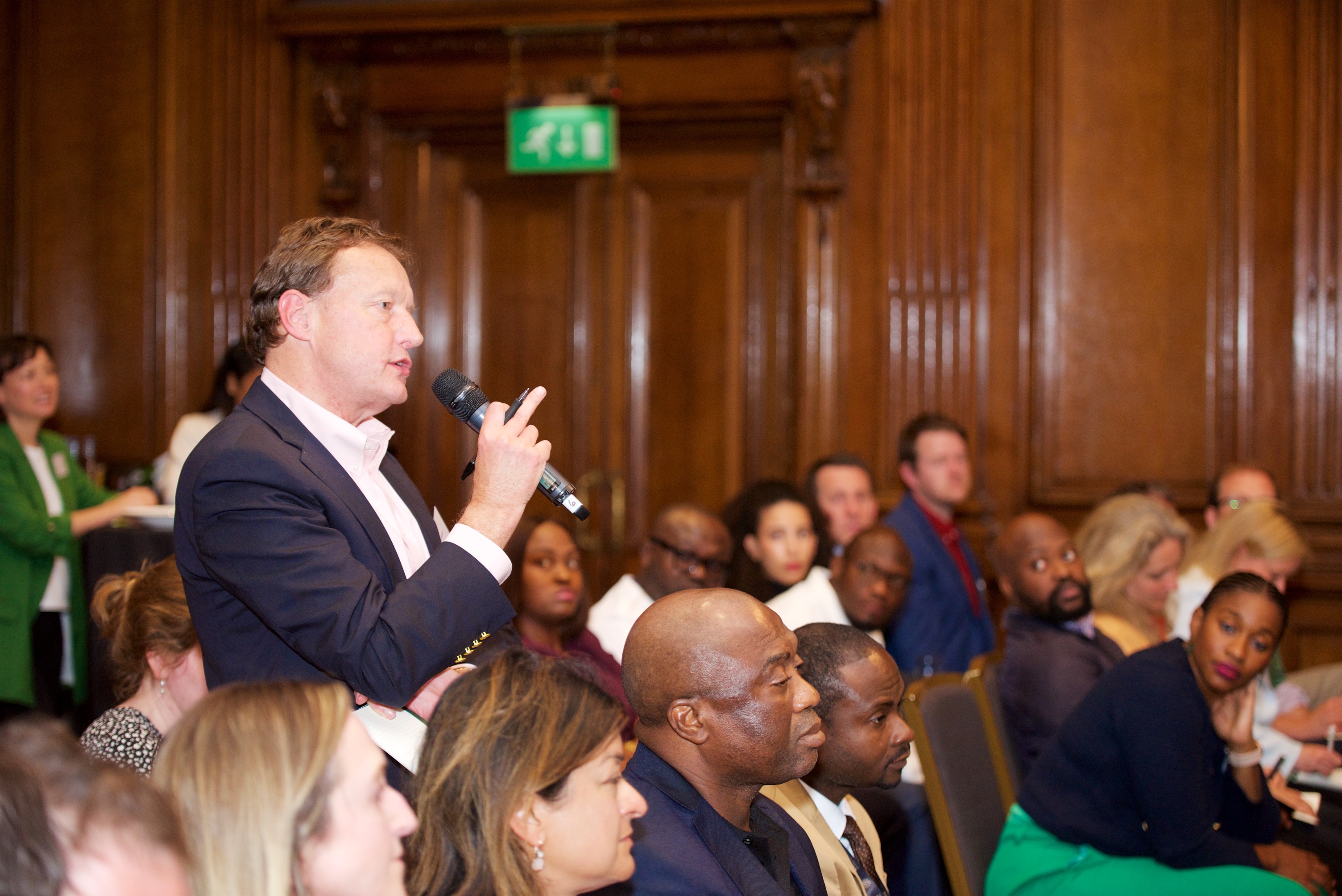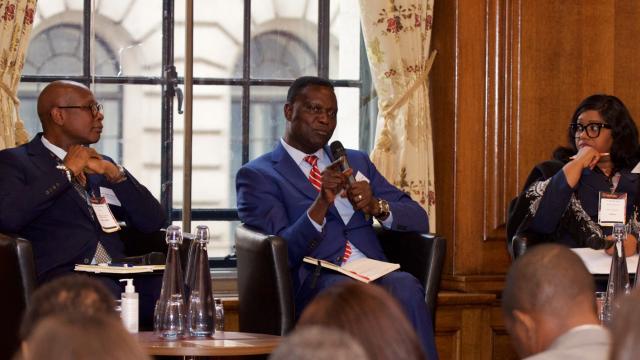Global Schools Forum - alongside IDP Foundation, Jacobs Foundation and Vitol Foundation - hosted a high-level event on the sidelines of the world-renowned Education World Forum in London. Education ministers from three African states; Ghana, Liberia and Sierra Leone, alongside the UK Government’s Alicia Herbert OBE, Director of Education, Gender and Equalities for the Foreign, Commonwealth, and Development Office (FCDO), committed to building up an evidence base of how partnerships in education systems have achieved greater learning outcomes for African children.

Along the theme of “Innovative Partnerships at Scale to Achieve SDG 4 in Africa”, the event took place at a time of heightened insecurity regarding the realization of the Sustainable Development Goals before the 2030 deadline. The gathering of African education ministers, policy officials, entrepreneurs, philanthropists, and civil society representatives acted as an opportunity to position partnerships as a vehicle for accelerating impact in education.
Alicia Herbert OBE set the tone for the event by reiterating the UK Government’s appreciation of non-state actors in education and their role as a complementary force for positive change in low- and lower-middle-income countries. The ministers in attendance - Hon. Dr. Yaw Osei Adutwum (MP), Minister for Education of the Republic of Ghana, Hon. Dr. Jarso Maley Jallah, Minister of Education of the Republic of Liberia and Hon. Conrad Sackey, Minister of Basic and Senior Secondary Education of Sierra Leone - highlighted successes in their education systems, acknowledged areas for improvement, and identified opportunities to drive change through meaningful partnerships.

Their collective comments highlighted a number of key takeaways:
- Firstly, that state and non-state cooperation has proven itself to be an effective form of improving learning standards, increasing enrolment, and investing in human capital for long-term benefit across a range of Sub-Saharan Africa education systems. There was a recognition that we need to continue to work across sectors and geographies in order to maintain progress. No single actor - state or non-state - can address the challenge ahead alone.
- Education finance and unlocking a sustainable pipeline of investment from a more diverse range of sources - including the private sector - is of vital importance if we are to maintain progress. We need to think innovatively and nimbly if we are to support the most marginalized in society.
- Continuing to remove hurdles to cooperation and innovation is required across the continent. To achieve the “socio-economic transformation” required by many developing states on the continent, education systems need to embrace all schools and operators - many of which are bringing new thinking and approaches to teaching and improving learning experiences. This means including non-state schools in national data collection, streamlining registration processes, and more.

Moderated by GSF Board Co-Chair, Dr. Vongai Nyahunzvi, the panel discussion was an interactive and engaging discussion with members of the audience posing a selection of questions to the panellists. Global Schools Forum was honored to be joined by an esteemed range of stakeholders in education who are in equal measure committed to helping African nations achieve SDG 4 by the end of the decade.
The event was covered by a number of African news outlets, including AllAfrica, Liberian Observer, Modern Ghana, The Sierra Leonean Telegraph and finally, two articles on News Ghana, the first here and the second here. If you'd like to find out more about our work to improve access to quality education across the world, click here
Driven by the demand from both governments and non-state actors, GSF is combining knowledge and learning from partnership arrangements to produce a set of tools and resources. These tools and resources aim to equip policymakers and non-state education providers to understand the breadth of possible partnership models, to ultimately seed more innovative and impactful partnerships.
- Sierra Leone Education Innovation Challenge, Sierra Leone case study here
- Inspect & Improve Programme, Uganda case study here & video case study here
- Transforming Teacher Education, Pakistan case study here & video case study here
- Tusome Early Grade Reading, Kenya case study here
More on our Government and Non-State Partnerships Evidence Hub coming soon.

